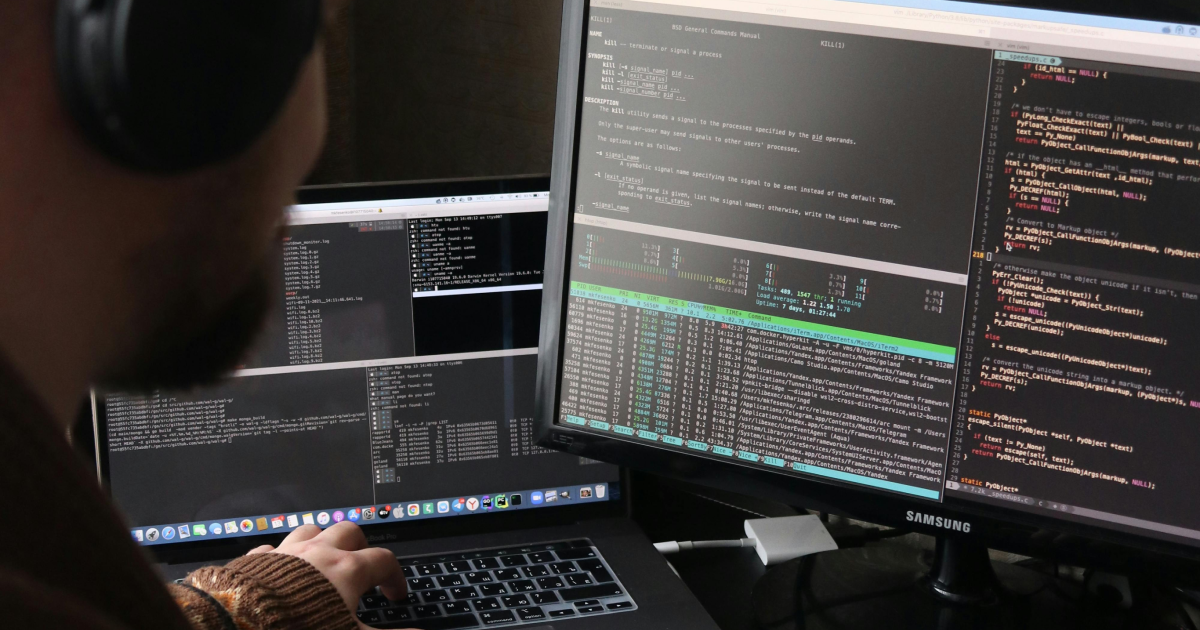Should you use AI to build your mobile app?
According to Github, 92% of developers are currently using AI coding applications. That means AI is quickly joining (and augmenting) the ranks of go-to engineering tools like code editors, compilers, and debuggers.
Which might lead you to wonder…Could I build my mobile app myself with the help of AI? True, AI is a powerful tool, and its capabilities are constantly evolving. But right now, it can’t replace human developers – or the rest of the digital product experts needed to set a new app up for success.
When used responsibly, AI can help speed up some of the repetitive/tedious steps in the development process, freeing up programmers to focus on the more substantial parts of the project. When over- or carelessly used, however, AI tools can introduce security flaws and create obviously derivative work. An experienced development team can use AI to speed-up and strengthen its delivery processes, without compromising product safety or quality.
The best uses for AI in software development
There are many appropriate uses for AI in software development. The best of these tools are purpose-built to solve specific problems, rather than broad attempts to replace the expertise of human developers. A few strong use cases include:
- Brainstorming and prototyping: While AI is also no match for a professional design team, giving shape to your ideas can help give them direction and focus early in the product process. Uizard and other design tools can rapidly create mockups and wireframes for your app that can help you work through possible technical requirements down the line. And image generation programs like Dall-e can provide temporary stock art and photos to explore content and style ideas.
- Code generation: AI tools like Github Copilot can help write short code snippets to speed up the development process. However, because generative AI makes recommendations based on existing solutions, its usefulness in solving new problems is limited. The more complex and novel your product idea is, the sooner AI will stall-out without prompting and guidance from a knowledgeable human developer.
- Code optimization: While AI is famously prone to certain kinds of errors (e.g. hallucination, omission of vital information), it outperforms humans in avoiding other kinds of mistakes. Akin to spelling and grammar check applications in word processing, code optimization tools can help engineers improve their code’s readability and accessibility. Github Copilot includes optimization features, and Denigma can explain even poorly-written code in natural language.
- Testing / QA: AI tools like TestSigma can help generate tests to verify that your program runs correctly. Good developers will often write hundreds of tests for a project, and many of them will be similar enough for AI to apply to your project.
It’s important to remember that these are all separate tools. They cannot work together on a project without a human coordinating them.

Problems with relying on AI for app development
Every tool has its place in a project, but over-relying on it can lead to problems. A hammer is incredibly useful when building a house, but it’s generally a poor replacement for a saw or a drill. Here are some weaknesses of current AI tools to keep in mind when using them for software development:
- Unoriginal: As noted in the code generation tools section above, AI is well equipped to match existing patterns to a problem, but the more novel the problem, the worse those matches will become. Remember that “generative” AI is really just very sophisticated “imitative” AI – trained on a vast amount of data reflecting what is, but not necessarily equipped to imagine what could be.
- Limited perspective: Most digital products need to satisfy multiple objectives to succeed – for different stakeholders, on different timelines, while considering a number of actual and possible challenges. True, LLMs have become much better at working within specified constraints when performing tasks, but they are still very much limited in the scope and time timelines they can incorporate into their solutions. Humans are much better than AI programs at thinking about the long-term impacts of a project and strategizing into an uncertain future.
- Obsolescence errors: Because AI programs are trained on data from the past, they may invoke outdated libraries. Even a properly functioning AI tool can’t avoid introducing vulnerability into code for a threat that didn’t exist when it was trained, making it crucial to ensure human review for the output of an AI coding application.
- Ownership ambiguity: There are plenty of unanswered questions relating to the ownership and use of AI-generated materials. Lagging regulations can’t currently be trusted to provide IP protection, so it’s critical to carefully review the terms of service and data use policies for any AI tool you’re considering incorporating into your development process. Keep in mind that future regulation may have an impact as well.
- Lack of understanding: AI design tools don’t know your users, and there’s no simple way to give them the level of insight needed to make product recommendations that align with their needs, motivations, and preferences. Without this deep level of understanding, even the most sophisticated AI tools can’t reasonably predict what solutions will work best for your potential users. At best, they can simply come up with suggestions for your mobile app that you can test or draw upon for inspiration.

Best practices for using AI for app development
When it comes to using AI tools for app development, following a few general guidelines will help to maximize their value while minimizing the risk of creating problems.
Tasks, not projects: Right now, AI is often most helpful for speeding up well defined, distinct tasks with measurable outcomes. It may be tempting to ask an LLM or other AI application to jump straight to a finished product, but the more steps you skip, the more mystery and error potential your final product will contain. Think of AI as an advanced automation tool, rather than a fully intelligent partner in your development process.
Check its work: Today’s generative AI tools are new, constantly evolving, and not fully predictable. Don’t be afraid to experiment with how they might improve your efficiency, augment your capabilities, or provide inspiration, but be sure to carefully examine AI outputs for accuracy, originality, and logical soundness before putting them into action.
Final thoughts
AI is changing rapidly, and we can only guess at its future applications and capabilities. These technologies are likely to improve in many ways, but human developers will continue to bring the strategy, insight, and big-picture perspective to the table that’s necessary for innovation.
Do you have an idea for a new mobile application, and want to discuss it with an expert development team? We’d love to talk!





























